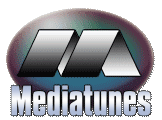Mechanical License FAQ
Do I need a mechanical license?
A mechanical license is a legal agreement between the owner of the copyrighted material and the music user who want to record and distribute a song. This agreement grants permission to release a song in any audio-only format. Some examples would be CD, Vinyl, tape, digital and streaming.
If you record and release a song in audio format that is written and composed by someone else, even if it a sample, a mechanical license is required. When someone reproduces a song written by someone else it is commonly known as a cover song. A mechanical license is required no matter how small a portion of the song you use.
It is important to know that a mechanical license is used only for audio products. A different license is needed if the song is incorporated into a visual medium such as film, slideshows and video. For this type of usage, a synchronization license is needed.
How do I get a mechanical license?
There are a few options to obtain a mechanical license. You can go through the Harry Fox Agency. If the song is register with them, you can get it there. You can also obtain a mechanical license from the song’s publisher or the copyright owner.
Who gets paid?
The copyright holder gets paid a royalty based on the terms of the mechanical license for the song being requested. The copyright holder is either the composer or their publisher.
What is actually covered in a mechanical license agreement
When a song is created it is important to know that the song is made of two components. First there is the composition component which includes the music and lyrics. The second element is the original recorded audio. These components can be owned separately by the same person or by two different entities. When a song is covered and fixed in an audio format the mechanical license covers that use. The second element would require a mechanical license to reuse the original recording.
When is the best time to obtain a mechanical license?
The optimum time to get a mechanical license is before distribution. Most manufacturers will need proof of licensing prior to the production of your recording. Likewise online services will do the same for a digital product.
